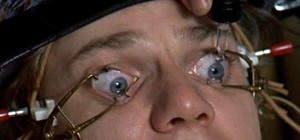Your brain holds a lot of precious information and is capable of great feats. However, there's one quality that doesn't lie among its strengths—memory security. Yes, that's right, your brain can be hacked, and it doesn't take a psychologist to do it. Anyone with the right know-how can change your memories for their own personal benefit, and you can do so to others, too.
Why Your Memories Are Such an Easy Target
Although the brain is stored within its own skeletal security chamber, your memories are incredibly easy to hack. In fact, your memories aren't fixed, according to neuropsychiatrist Dr. Jon Lieff, so they can be altered with the tiniest of tweaks.
Once an event occurs and time moves on, it becomes a part of your memory. Each time you recall that event and its details—smells, sounds, details, and so on—you're not, in fact, remembering the original moment. Instead, you're recalling the last time you remembered that memory.
Sound confusing? Put simply, you don't remember moments; you remember your memories of a moment. And, as events become memories, they grow easier to change. Dr. Lieff states that, in the 24 hours after an event occurs, the way you think about that day, evening, or moment alters how you'll perceive it each time you recall it moving forward.

Daniela Schiller, professor at Mt. Sinai School of Medicine and formerly New York University, also notes just how faulty our minds are when it comes to memories. Schiller conducted research on memory recall and discovered that each time we remember a memory, we alter it in some way. Our brains, she notes, are more like water-weakened cardboard than iron traps: details slip away with each recall, and we reconstruct memories in our minds differently as time passes.
Additionally, as Wired writer Jonah Lehrer points out, human nature makes us love stories, and the more exciting and engaging a story is, the more we'll want to share it. As a result, when we recount our memories both internally and to others, we ignore any facts that don't suit the plot. Our minds allow us to toss aside any information that we dislike, replacing truth with pure fiction. Why? We simply want to fit in, and unless we change what we remember, our stories will suck.
Does Implanting False Memories Really Work?
So, it's easy to change your own memory—in fact, we hack our own brains with every shared memory and recounted story, altering the facts to suit our audience (and ourselves). But how could this possibly work on those outside our own heads?
According to a Psychology Today interview with Dr. Elizabeth Loftus, a psychologist from the University of California, Irvine, planting a faked memory or story in another's brain is all about the way you tell it.

Dr. Loftus has a reputation both as a forensic psychologist and a controversial memory implanter. In her years of research, Loftus has worked to understand how memories can change in others' brains—and she's implanted her fair share of not-so-credible memories.
In one experiment, Loftus tested the credibility of eyewitness accounts in car accidents. When study participants were asked to recount exactly what they'd seen take place, they offered details as best they could, some vague and some more specific. Yet when Loftus prompted these same individuals, asking them if they saw either "a" broken headlight or "the" broken headlight on one of the vehicles involved, those who heard the word "the" changed their story, admitting that they remembered "the" broken headlight. However, no broken headlight existed.

Loftus tested the viability of memory hacking again when she asked study participants to share childhood memories. Once again, when Loftus prompted her participants to remember events that never occurred, the individuals responded by agreeing with her altered version of their own memories. In fact, they offered even more false information, claiming they could recall the names of stores, siblings, and other details who were with them when the fake memories "happened."
All of Loftus's work shows that not only our own minds are susceptible to a simple memory hack, but that implanting a story in another person's mind can lead them to build their own new, altered memories, overriding whatever it is that they actually recall.
Blame the Misinformation Paradigm
Why, with all of their precious memories and stockpiles of information, are our brains so easy to hack? With the slightest suggestion, our memories no longer become our own but rather ones we've created based on others' suggestions.
The answer lies in what Dr. Loftus calls the misinformation paradigm. It connects back to Lehrer's point: we don't want to appear as though we're socially inept. We're willing to fudge our memories and make them more exciting to appeal to social groups, and we're equally concerned about being proved wrong.
No one wants to be called out for a weak memory, or forgetting the details of a standout event. So, in turn, when another person suggests things didn't quite happen as we remember, we're willing to shift our memory to suit theirs—all in the name of social acceptance.
How to Actually Implant Fake Memories in Someone
When you want to mess with your friends' minds, take a page from the research of Micah Edelson, Tali Sharot, and their fellow researchers. This group of neuroscientists tested exactly how we can implant false memories in the minds of others, and to what extent we could truly trick them.
First, offer a body of supporting evidence. When Edelson, Sharot, and their team had subjects watch a documentary and then recall it, the responses changed the second participants were allowed to see others' summaries. Though the summaries were completely false, the participants chose to believe what others said happened—giving up on their own perception and succumbing to the pressure of others before them.

Say you owe your friend a significant sum of cash, but you're not exactly interested in paying them back right away. You simply need to implant a false memory, one in which you and your friend agree that you'll repay the sum at a different, much later date. When they approach you to collect the cash, remind them that it wasn't due for two more months. As long as their are no texts to prove it, you can persuade their memory to agree with yours, especially if you get another person to back your story.
Or, if you're attempting to change a friend's behavior through false memories, try lying to them in a different way: tell them they didn't complete a task that they, in fact, did. For example, if your roommate can't seem to understand that doors need to be locked when leaving home, point out the unlocked door every single time you leave. Do this repeatedly over time, and your roommate will start double-checking and questioning himself every time he leaves home. "Did I lock the door? Did I completely forget?"
If false memories prove too tricky for your friends' brains, you can also try gaslighting them. Instead of altering their memories, gaslighting is a hack in which you convince others they're crazy—and that you're the sane one. Each time you remind friends of their mistakes, react as though their thoughts are illogical, trivialize their worries, and feign forgetfulness, you slowly and subtly lead them to believe they're losing their minds.
Why This Is All Perfectly Okay to Do
Sure, it sounds mean to mess with your friends' minds and implant completely false memories of situations that may never have occurred. But what if your memory tweaks had the potential to do good?
As Loftus argues, there are ways to use false memory implantation for good. When parents crafted lies to keep their children from eating ice cream, telling the kids that they were incredibly sick each time they ingested the treat, over time the children developed a distaste for the sweet, sugary treat—and they ended up losing weight.
Though you may not be attempting to convince your friend to stick to their diet, you can use your memory-changing powers for good. Instead of hacking their brain to get what you want, try implanting false memories that will help them.
For example, remind your best friend just how much they fought with their ex each time they're tempted to contact them; or mention how disgusting they found a former roommate's laundry habits to be (even if they weren't) when they're considering moving back in with someone they can't stand. Use your own brain power to better another's choices, and you won't feel so guilty.
Just updated your iPhone? You'll find new emoji, enhanced security, podcast transcripts, Apple Cash virtual numbers, and other useful features. There are even new additions hidden within Safari. Find out what's new and changed on your iPhone with the iOS 17.4 update.






















6 Comments
'Why this is ok to do'. Good Lord - there is nothing ethical or decent about techniques like gaslighting. It's disgusting. None of us have the right to try to fuck with our friends - even out of the misguided notion it can help them. You want to help your friend - recommend a healing technique or a counselor. No-one has the right to try to steer anyone else using such methods. How are they to learn if we resort to such methods?
You're right, this is an awful thing to do to someone, especially if their intention is to hurt you and not help you, I know from personal experience.
Step 1: so how can you stop people from hacking your brain a installing false memory's or just stop them in there tracks pls I'm wating for response
Well, the argument is that people choose "fitting in" over being their authentic selves and in touch with their actual memories. So, theoretically, if you were confident and had high self-worth, uncaring of other people's opinions about you, you wouldn't voluntarily change your memories to fit in. How do you increase your self-worth? Exercise, meditation, self-worth affirmations, doing things you love, resolving trauma, processing your emotions, etc.
This is insane real future stuff exciting
Do you believe in mind hacking? I experience those..I need an answer soon.. People hear my mind like a clairaudience.. I search a lot.. I'm not crazy I know what's going on.. dogs bark and people cough or they transfer feelings to me that I need to fart everytime I say bad things about them.. Help me on this thing.. I know God can help me on this matter but I need someone who I can talk to, to help me..
Share Your Thoughts